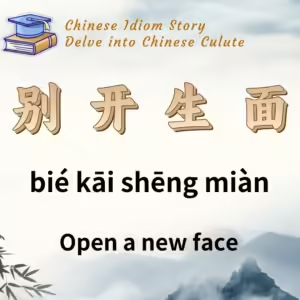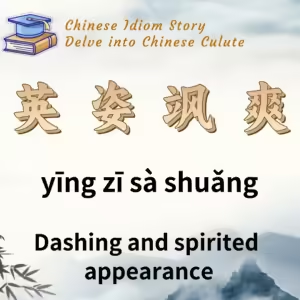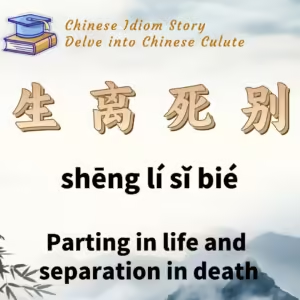
Chinese Idiom: 别开生面 (Bie Kai Sheng Mian)
English Translation: Open a new face
pīn yīn: bié kāi shēng miàn
Idiom Meaning: This idiom is used to describe creating a new style or perspective, signifying innovation or originality.
Historical Source: The idiom originates from a poem titled Danqing Yin Zeng Cao Jiangjun Ba (丹青引赠曹将军霸) by the Tang dynasty poet Du Fu.
Idiom Story:
In the second year of the Qianyuan era (759 AD), Du Fu, who had suffered greatly from the chaos of war, moved with his family from Qinzhou (modern-day Tianshui, Gansu) to Chengdu, Sichuan. At this time, Sichuan was still peaceful and prosperous, offering a stark contrast to the war-torn central plains. Upon arriving in Chengdu, Du Fu found some respite from his long-standing worries and sorrows.
With the assistance of his cousin Wang Shiwushi, Du Fu cultivated a piece of barren land near Huanhua Creek in western Chengdu and built a thatched cottage. He also planted peach, plum, orange, and bamboo trees around his humble home. The following spring, he moved in with his family, beginning a new chapter in his life filled with creative inspiration.
Chengdu’s spring was reminiscent of the beautiful landscapes of Jiangnan, with lush green wheat fields, golden rapeseed flowers, round lotus flowers in ponds, and drooping willows lining the banks, all displaying enchanting colors. Inspired by this picturesque scenery, Du Fu wrote many beautiful poems during this time.
While in Chengdu, Du Fu mingled with notable literary figures who had sought refuge in the city. Around the seventh year of the Qianyuan era (764 AD), he wrote a poem praising the famous painter Cao Ba, who had once served as a general but had fallen from grace. In this poem, Du Fu not only lauded Cao Ba’s artistic skills but also his character.
One notable couplet from the poem states:
“凌烟功臣少颜色,将军下笔开生面。”
(“The portraits of the founding heroes in Lingyan Pavilion have faded; the general brings them to life with his brush.”)
These lines express how Cao Ba revitalized the faded images of the founding generals with his artistry. The phrase “将军下笔开生面” illustrates the concept of reviving and recreating something with fresh vigor and energy.
Over time, the expression “别开生面” became shorthand for the innovative and original efforts exemplified by Cao Ba’s work.






